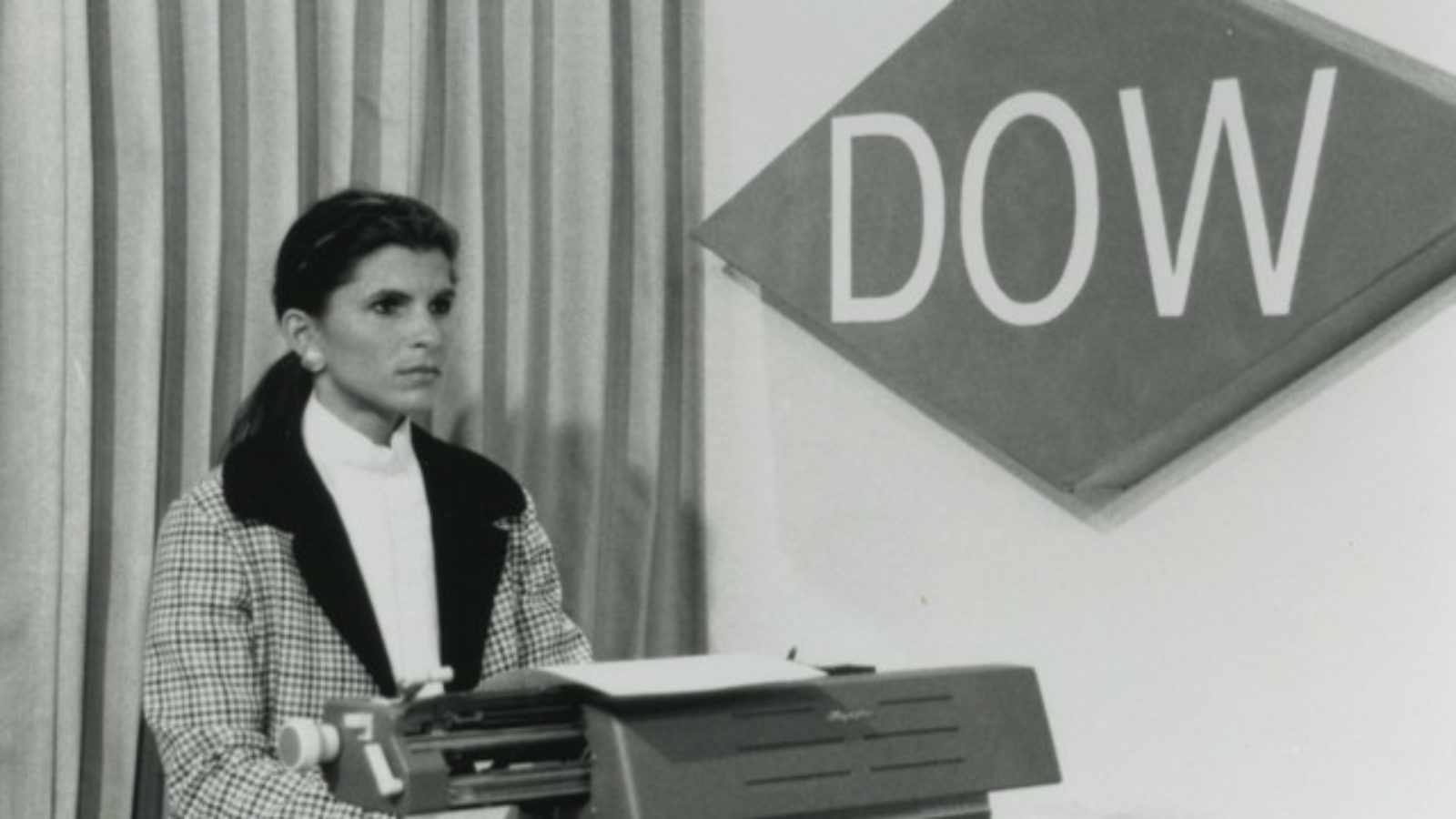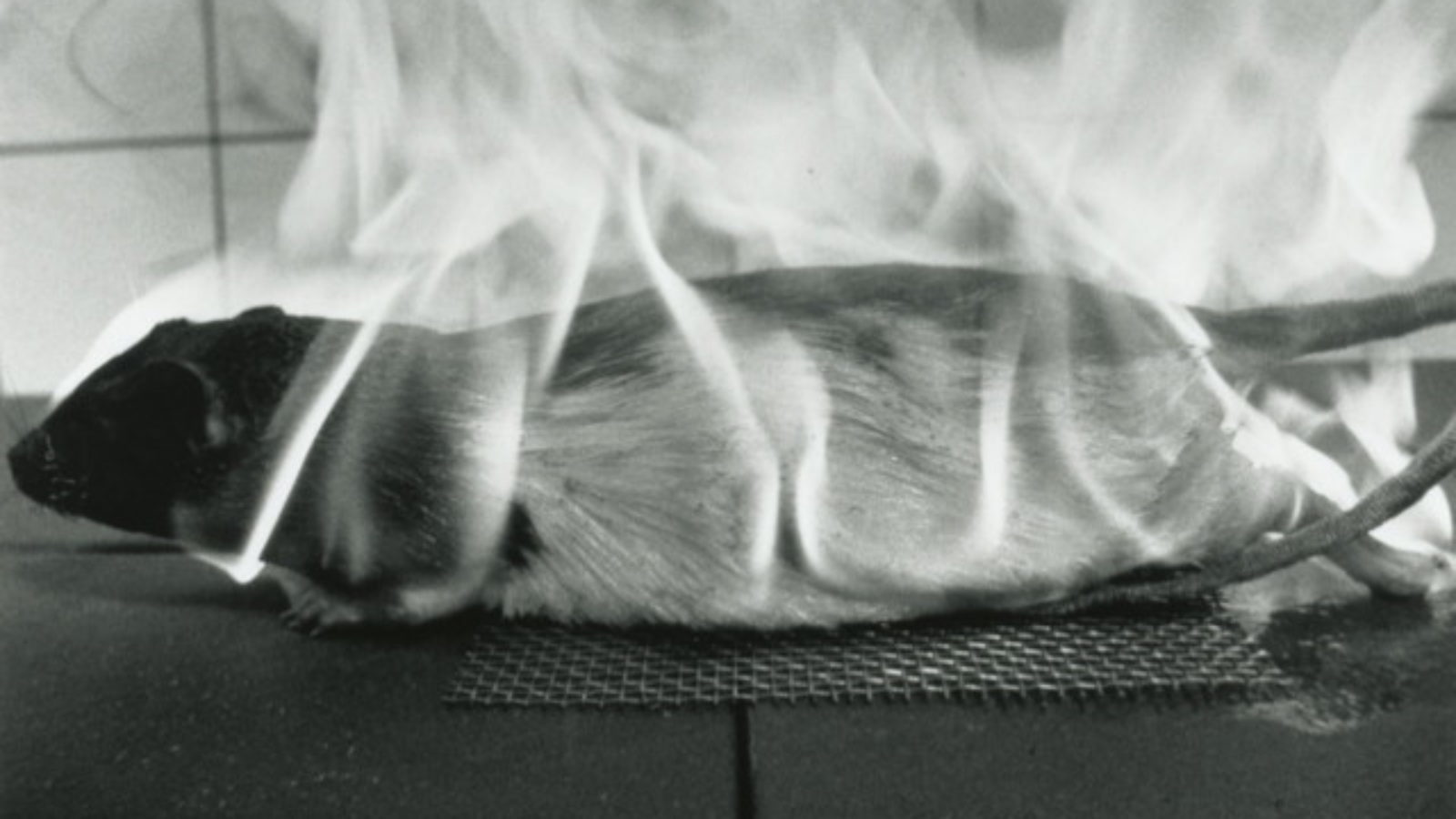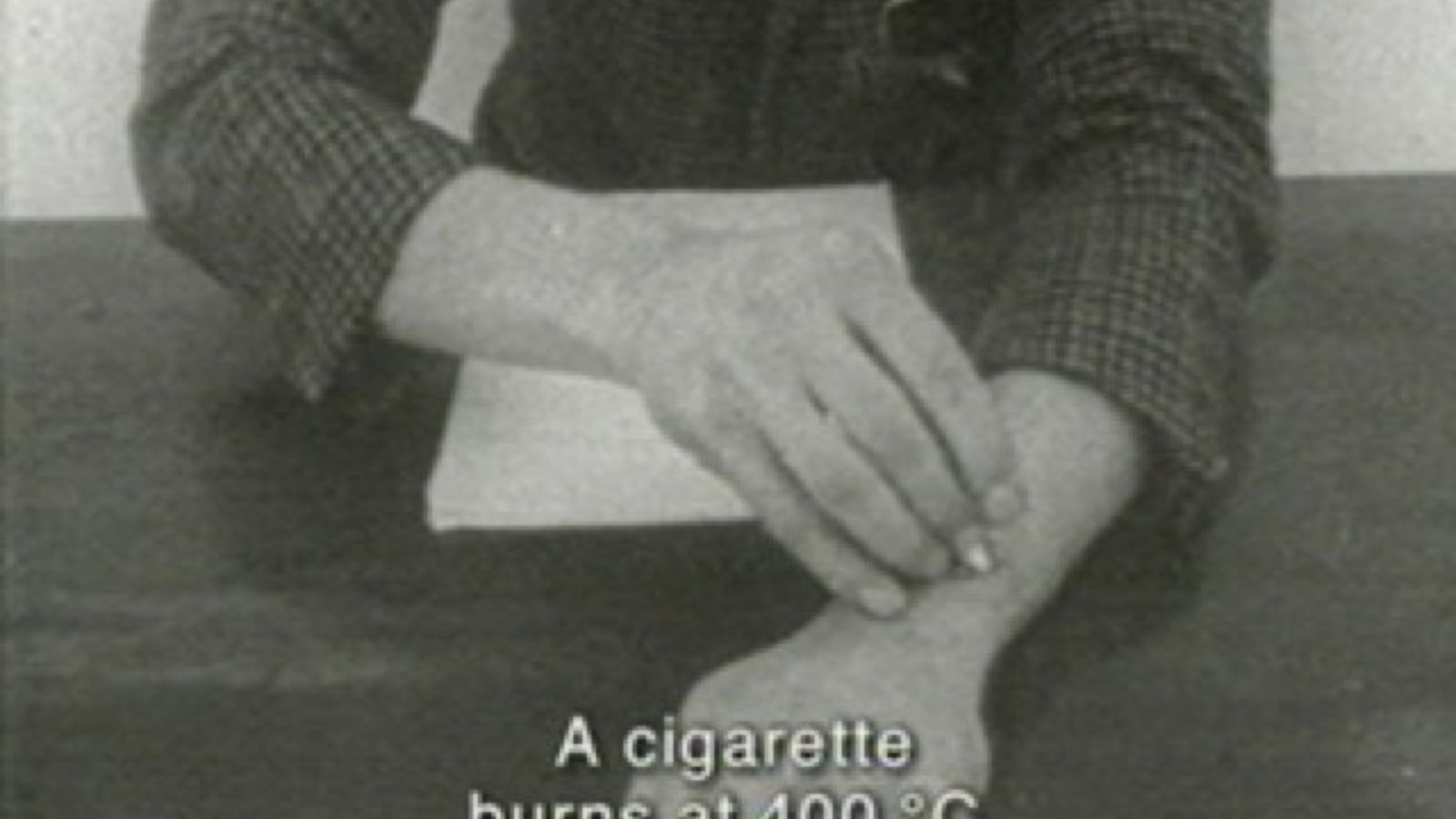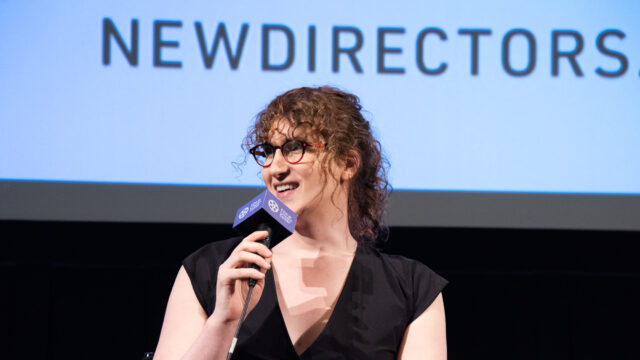What Farocki Taught + Inextinguishable Fire
Q&A with Jill Godmilow
This program pairs Harun Farocki’s seminal antiwar film, which explores the development of napalm by dramatizing the inner workings of Dow Chemical’s Michigan headquarters, with Jill Godmilow’s exquisitely precise, shot-for-shot remake, made nearly 30 years later.
What Farocki Taught
Jill Godmilow, USA, 1998, 16mm, 30m
A shot-for-shot remake of Harun Farocki’s Inextinguishable Fire, translated into English and shot on color Kodachrome. Every motion is exquisitely reproduced—from the self-inflicted cigarette burn at the beginning, to a woman reacting to evening news coverage of the Vietnam War by putting her head on her husband’s shoulder—though the precision is occasionally underscored by Godmilow superimposing Farocki’s original over her reproduction. In a short epilogue, Godmilow is interviewed about her project on the set, expanding her thoughts in a voiceover recorded later: “We don’t have a name for this type of film… it replaces the documentary’s pornography of the real.”
Inextinguishable Fire
Harun Farocki, Germany, 1969, digital projection, 29m
Among the most powerful antiwar films ever made, Farocki’s short unsentimentally traces the connections between the state, corporate interests, and scientific research by dramatizing the internal workings of the Dow Chemical plant in Midland, Michigan, surrounding the development of napalm. With the haunting refrain “A chemical corporation is like a set of building blocks. We let each worker have one block to work with. Then we put the blocks together to make whatever our clients request,” the film builds upon repetitions and news footage from Vietnam to illustrate the devastating consequences of a populace divided and disempowered by capitalism.









